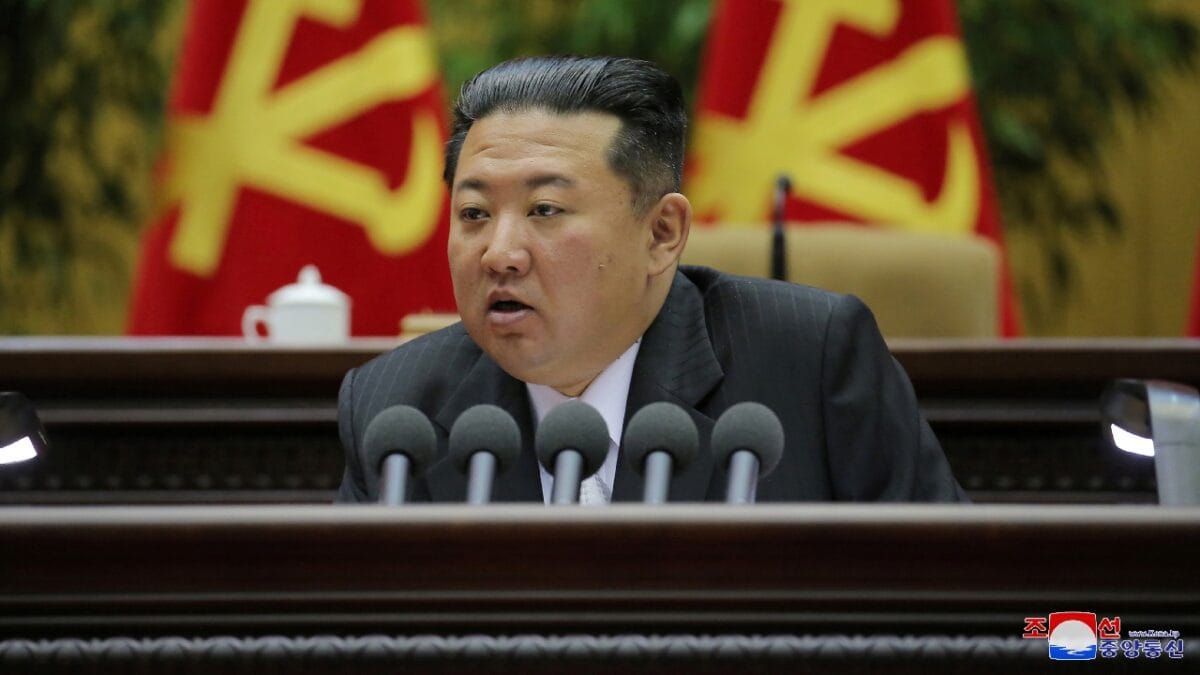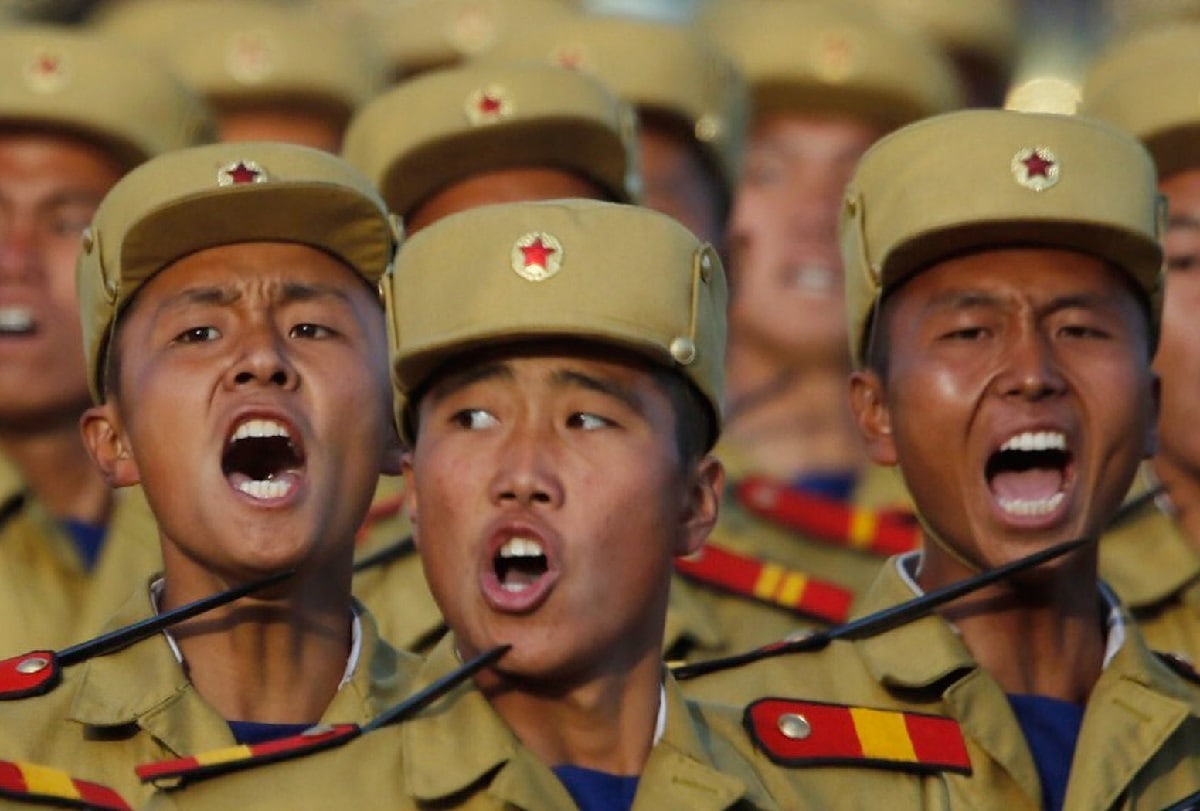Washington Must Learn to Bargain with a Nuclear North Korea: Kim Jong-Un’s statement in early September that North Korea will never give up its nuclear weapons should be the last nail in the coffin of Washington’s strategy toward that country. Since Pyongyang has officially declared that it is now a nuclear-weapons power, the United States and its allies must move on from the quixotic goal of getting Pyongyang to abandon its nuclear ambitions. For nearly 3 decades, Washington has led an international effort to isolate the Democratic People’s Republic of Korea (DPRK) until it agrees to a complete, verifiable, and irreversible end to its nuclear program. Pyongyang’s refusal to comply with that demand has led to ever-tightening economic sanctions, but it is now indisputable that the isolation strategy has not worked.
Washington’s hoary approach is both futile and dangerous. Experts believe that North Korea already possesses a small arsenal of 20-30 nuclear weapons, and Pyongyang is fast developing sophisticated ballistic missile systems to deliver those weapons at greater and greater distances. In less than a decade, Pyongyang may have a nuclear arsenal rivaling that of Pakistan’s estimated 165 warheads. Yet Washington has no diplomatic or economic relations with this rising nuclear power.
That situation continues a pattern of Washington’s behavior toward regimes that it finds excessively uncooperative and disagreeable. U.S. leaders refused to recognize the Soviet Union until 1933, well over a decade after the Bolshevik revolution. A new generation of policymakers adopted the same approach toward the People’s Republic of China (PRC) after that country’s communist revolution in 1949. It was not until Richard Nixon transformed U.S. policy that Washington established meaningful relations with Beijing on even an informal basis. Formal recognition of the PRC and the establishment of diplomatic relations waited several years more, until Jimmy Carter took that step.
While efforts were made during the Obama years, the United States still refuses to fully restore diplomatic ties with Cuba’s communist regime more than 6 decades after Dwight Eisenhower’s administration severed relations. A similar process occurred with respect to Iran following that country’s 1979 Islamic revolution. In the cases of both Cuba and Iran, Washington has tried to enforce its isolation strategy with unilateral and international economic sanctions. That approach has not worked much better than it has with regard to North Korea.
Frankly, it is an obtuse, juvenile strategy reminiscent of behavior on a middle school playground. Washington doesn’t like certain governments, so it refuses to play or even talk to them. It also spends a great deal of effort trying to get friends and classmates to go along with attempts to isolate and harass the targeted adversary.
It is past time for U.S. leaders to discard that approach and act like adults. Just as he damaged so many other aspects of U.S. foreign policy, Woodrow Wilson added a selective moral purity test to Washington’s traditional standards for establishing diplomatic relations with foreign regimes. Wilson’s successors, especially since World War II, have perpetuated that foolish approach. The standard has always been highly selective; regimes that defer to the United States are rarely penalized, no matter how ugly their domestic or international behavior. Regimes that cause problems for Washington, though, experience isolation—or worse.
The selective moral purity test is toxic because it worsens international crises and inhibits the United States from making a policy change even when the existing policy clearly is ineffectual, counterproductive, or dangerous. Refusing to have the necessary range of diplomatic and economic relations with an emerging nuclear-weapons state is the essence of such reckless behavior.
Washington needs to abandon its current strategy toward North Korea immediately. Instead, the Biden administration should approach Pyongyang with an offer for direct, wide-ranging talks. The first goal of negotiations would be to conclude a peace agreement to replace the 1953 Armistice and explicitly end the Korean War. The second step would be to establish formal diplomatic relations with the DPRK, provide for embassies and consulates in the two countries, and appoint ambassadors to their new posts. President Biden can take all of those steps under his own authority. He also can withdraw U.S. military forces from South Korea as part of the process of normalizing relations with Pyongyang.
Rescinding the vast regime of unilateral and international sanctions is more complicated. Most other governments likely would follow Washington’s lead, if the Biden administration moved to terminate most of the sanctions that the United Nations (under intense U.S. pressure) has imposed over the decades. Rescinding unilateral U.S. sanctions would be more difficult, however. Although the president could lift some of the measures, others would require congressional action. Given the hostile attitude of most members of Congress toward the DPRK because of its dreadful human rights record and its bullying rhetoric toward its neighbors, there will be intense opposition to repealing—or even softening—existing sanctions. It will be a major test of U.S. diplomatic skills to make Kim Jong-Un’s government understand that some sanctions will remain for the indefinite future, however much the White House might wish otherwise.

North Korean leader Kim Jong Un speaks during the 2nd Conference of Secretaries of Primary Committees of the Workers’ Party of Korea (WPK), in this photo released on March 1, 2022 by North Korea’s Korean Central News Agency (KCNA). KCNA via REUTERS.
Despite the obstacles, it is imperative for Washington to adopt a new, more realistic, and constructive policy toward North Korea. The current approach is utterly bankrupt. North Korea will not relinquish its nukes, and the United States should not want a situation in which it has no meaningful relationship with a nuclear-armed country. Washington’s ineffective North Korea policy has remained on autopilot, and there are few signs of fresh thinking on the part of the Biden foreign policy team. That situation must change, or the United States will risk a nuclear calamity.
Expert Biography: Ted Galen Carpenter, a senior fellow in defense and foreign policy studies at the Cato Institute and a contributing editor at 19FortyFive, is the author of 13 books and more than 1,100 articles on international affairs.

